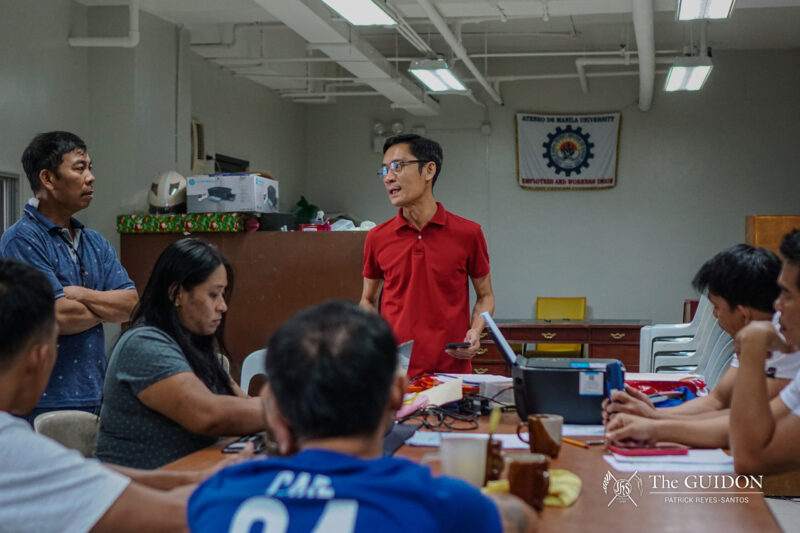THE SANGGUNIAN, the Council of Organizations of the Ateneo (COA) and the Office of Student Activities (OSA) launched this year’s financial support program, entitled “BOOST,” yesterday, July 20.
Sanggunian Finance Officer Billie Dumaliang, COA Finance Officer Miko Tiu and OSA Director Christopher Castillo presented the various subsidies and grants.
Castillo noted that the awarding of financial grants and subsidies is not a new initiative. “This year, to have a wider reach and a more deliberate impact, the efforts in relation to all the grants and subsidy systems are being more closely coordinated,” Castillo said.
“We put our heads together and we put something together. It’s still coming from one pocket and it’s still three distinct things,” he added.
Castillo distinguished subsidies from grants. He said that a subsidy gives help or support where needed, whereas a grant “acknowledges or recognizes very excellent effort” put into a project.
He explained that the grants and subsidies have to be “[anchored] on certain values and principles” and that these are also considered when assessing the applications for grants.
“The money we use for these grants and systems are, in a way, similar to taxes,” Castillo said. “And in a way, we are like the guardians of these amounts. [The amount] comes from the student activities fee.”
He listed excellence, service, creativity and prudence as four aspects of the projects that his office will be looking into when assessing the applications for grants.
Dumaliang presented the Sanggunian Subsidy System (SSS), which “caters to projects, research and thesis and conferences.” Undergraduate students or student groups can apply for the subsidy.
Tiu, on the other hand, presented “Accelerate,” the project grant of COA.
Any of the 50 accredited organizations, as well as those applying for accreditation and the independent organizations, may avail of this grant. Only two projects are allowed per application.
According to Tiu, the COA project grant is merit-based, having the applicants “compete” for the grant. The amount that COA will grant to an organization depends on the stage that its project will reach.
Castillo then explained the OSA Financial Management System (FMS). He listed the types of subsidies that may be given to students, groups or organizations whose projects or initiatives “[do not] fit in the Sanggu and COA grants.”
OSA’S FMS includes the following: 1) semestral budget allocation, which is given without the need for application, 2) semestral seminar subsidy, which has to be applied for but is already “budgeted”, 3) revolving fund for quick cash needs and 4) emergency funding, which refers to situations wherein an organization might need to do a particular project but currently cannot fund it, and there is no “means to raise that amount by the time [it is needed].”
Castillo also mentioned three new additions to OSA’S FMS, namely publication projects, external conferences and competitions and org-based service-learning initiatives.
Guidelines on applications for the Sanggu and COA subsidies and grants will be posted online.






